Biden surveys California fire damage as he urges action on climate change
It was the president's first trip to the West since taking office.
President Joe Biden on Monday made his first visit to the West Coast as president, surveying wildfire damage and pushing for action on combatting climate change.
Biden first stopped in Boise, Idaho, to visit the National Interagency Fire Center -- which coordinates the federal government's response to wildfires -- before traveling to the Sacramento, California, area to view the impact of the Caldor Fire and receive a briefing from local officials.
The president has used recent natural disasters to show the urgency of climate change and its deadly effects on the American people, pitching his massive spending plan as a way to rebuild infrastructure in a greener, cleaner, more resilient manner.
He also used the trip as a way to shore up support for California Gov. Gavin Newsom, a Democrat facing a recall election Tuesday. Newsom appeared alongside Biden at his stops in California, thanking the president for making climate change a priority.
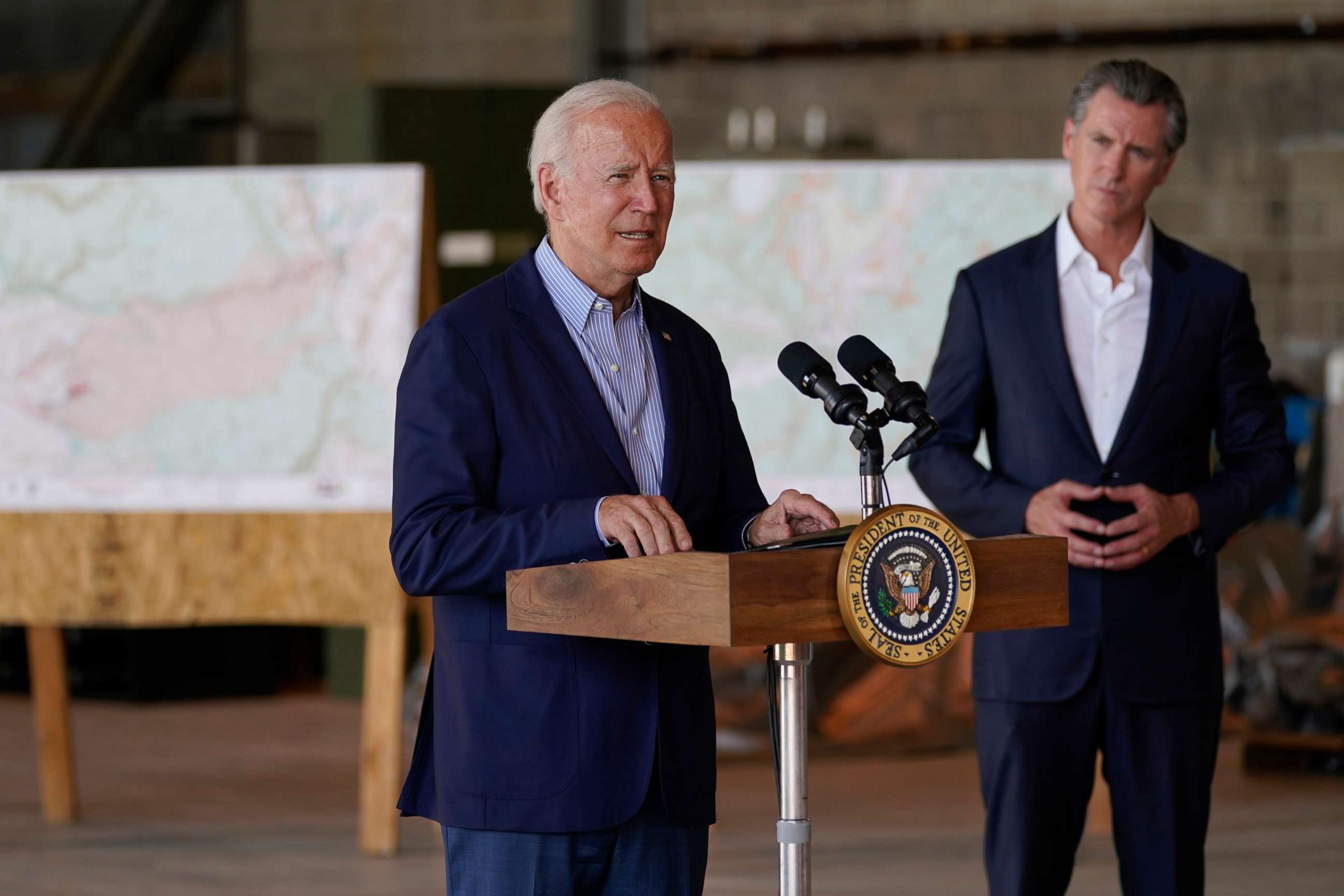
After flying over damage in northern California, Biden spoke of the devastation -- "homes, precious memories destroyed" -- and called the more frequent and extreme wildfires "a blinking code red for our nation."
"We can't ignore the reality that these wildfires are being supercharged by climate change," he said. "It isn't about red or blue states; it's about fires, just fires."
The president said Americans need to face the reality that times have changed.
"From the Yellowstone fire to today, all's changed, in a drastic, drastic way," Biden said while meeting with officials in Boise, referring to the 1988 fires that at the time prompted the largest-ever firefighting response in U.S. history. "It's changed, It's not going back. It's not going back."
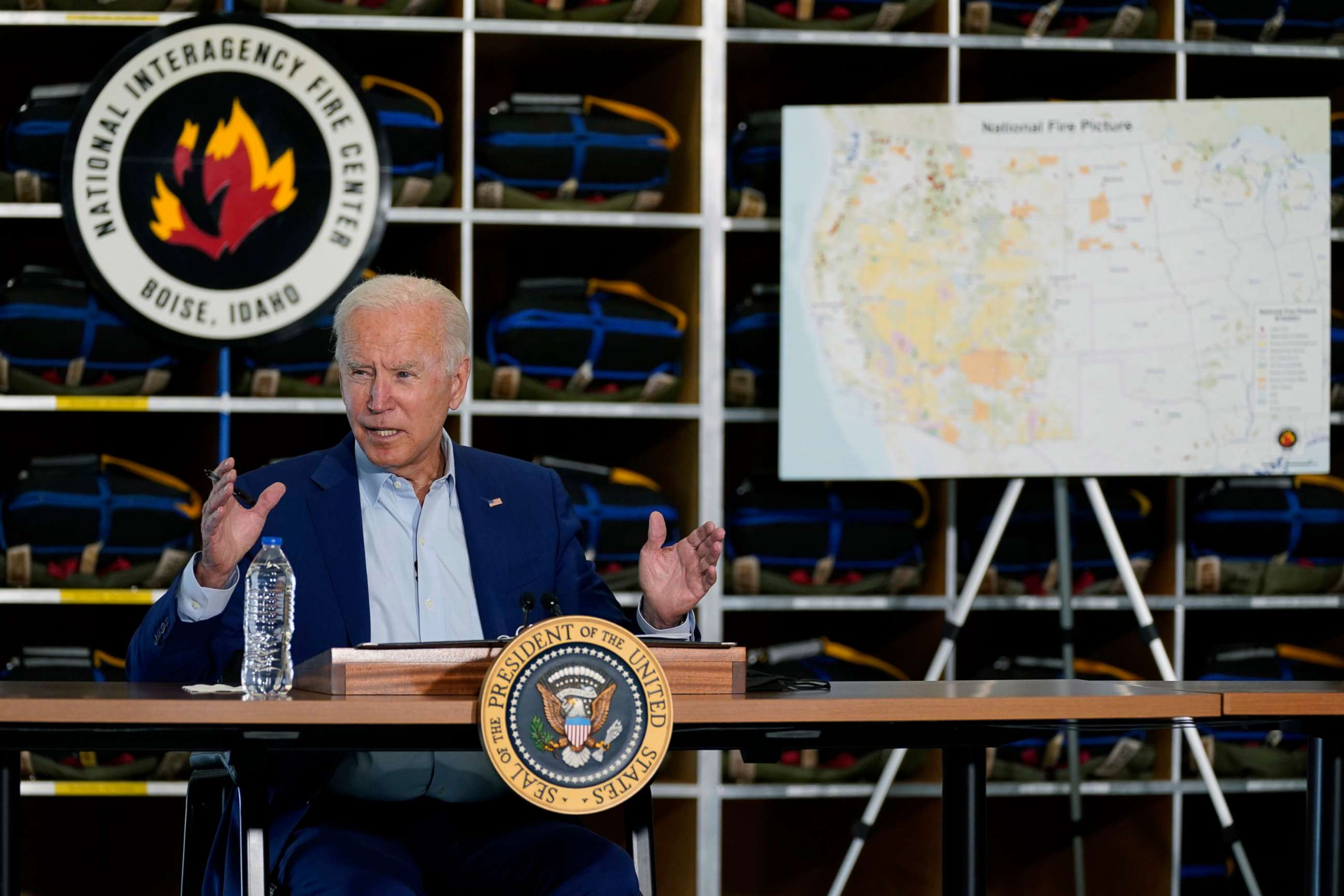
Earlier this month, the president visited Louisiana, New Jersey and New York to see the impact of Hurricane Ida and its remnants.
The White House and Democratic leaders in Congress hope to pass two major bills by the end of the month that, together, would make hundreds of billions of dollars available for developing clean energy, rebuilding physical infrastructure to make it withstand more extreme weather events, and electrifying the federal fleet of vehicles.
"My message to you is, when we build back, we have to build back better," Biden said, using a slogan he has used to describe his agenda. "It's not a Democrat thing, it's not a Republican thing. It's a weather thing. It's a reality."
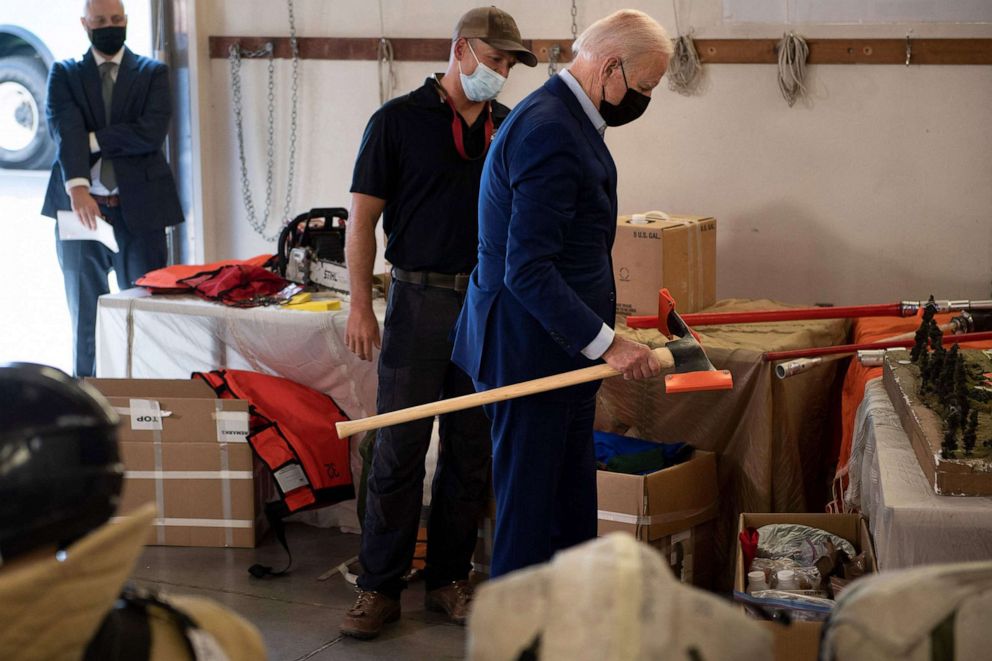
The larger bill -- the price tag and contents of which have been subject to Democratic infighting -- would devote $135 billion to preventing wildfires, dealing with droughts and promoting clean energy in rural communities, among other things.
In California, Biden explained that the $3.5 trillion would be spent over 10 years and would represent a small fraction of the size of the United States' gross domestic product.
"We have to think big," he said. "Thinking small is a prescription for disaster. We're going to get this done. This nation is going to come together, and we are going to beat this climate change."
While in Idaho, Biden toured the federal fire center and promoted his administration's use of the Defense Production Act, a 1950 law that allows the president to direct civilian businesses to help meet orders for products necessary for the national defense, to spur the production of firehoses.
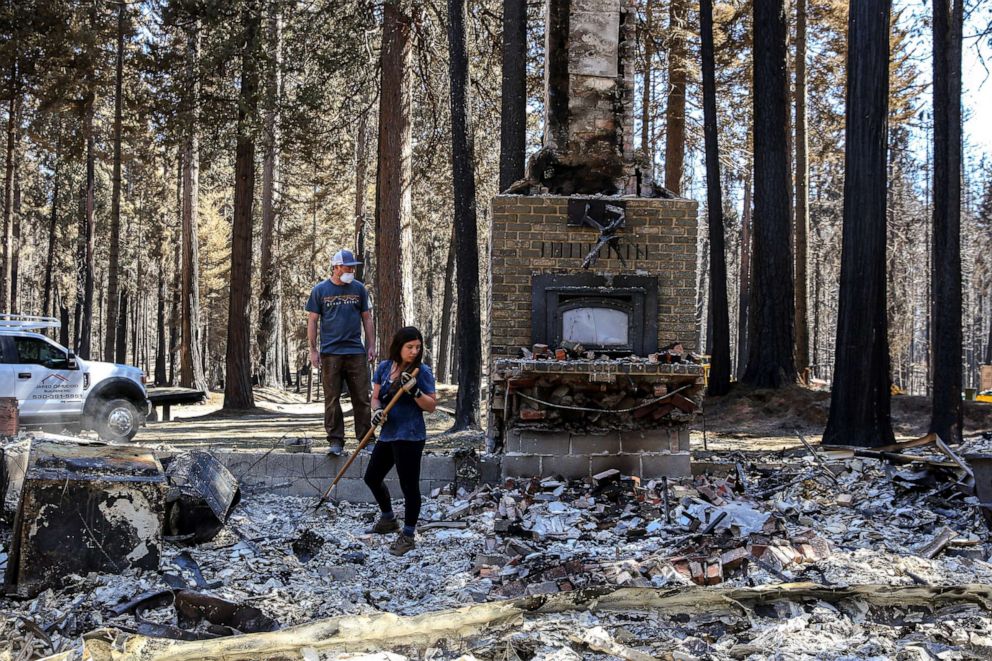
The use of the act enabled an Oklahoma City-based nonprofit, which is the main supplier of the U.S. Forest Service's firehoses, to produce 415 miles of fire hose, according to a person familiar with Biden's remarks.
Biden said he was able to "restart production ... bringing a lot of people back to work, delivering 21,920 new feet of firehose at the frontlines."
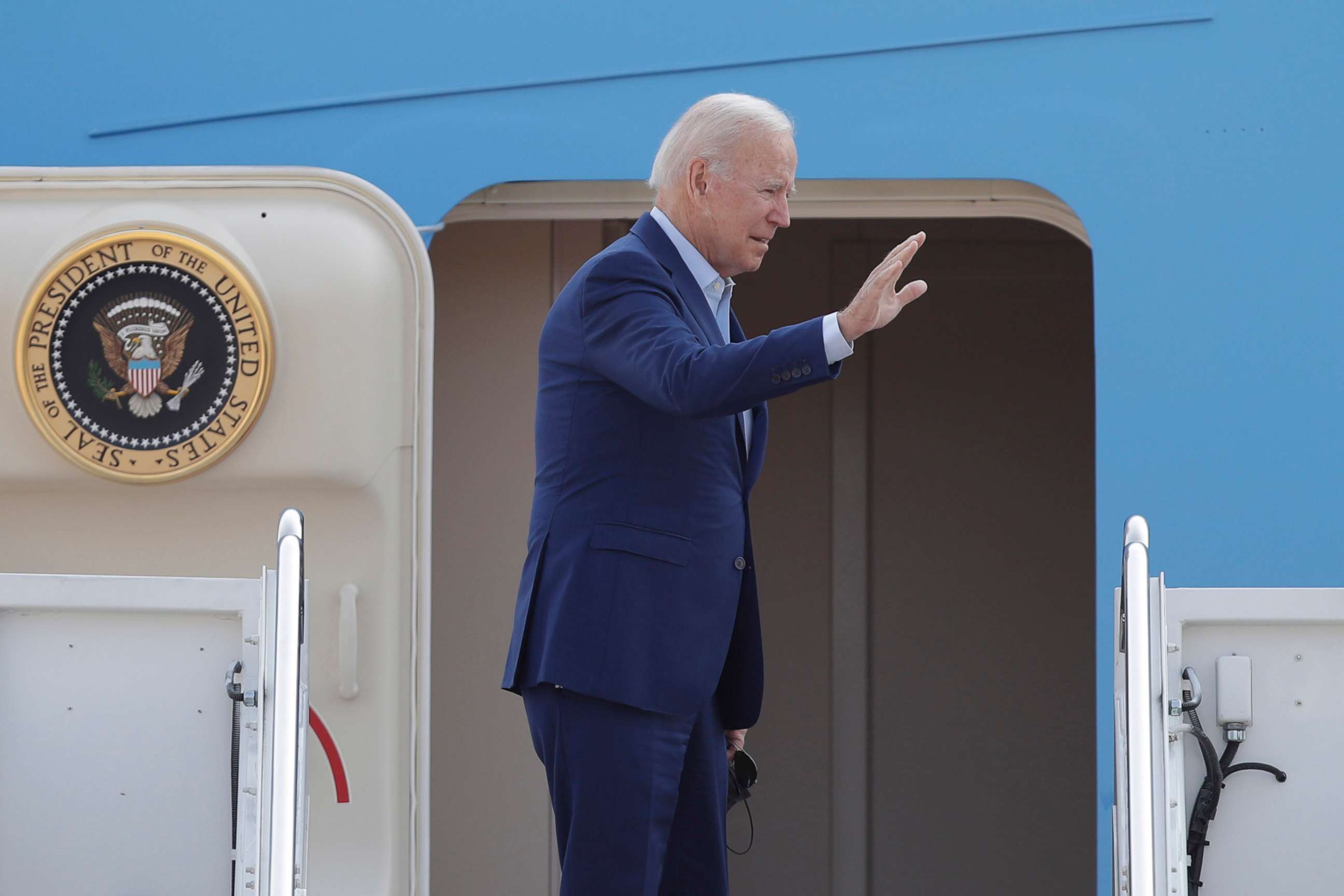
He then traveled to Long Beach, California, to speak at a Monday evening campaign rally with Newsom.
ABC News' Sarah Kolinovsky contributed to this report.




